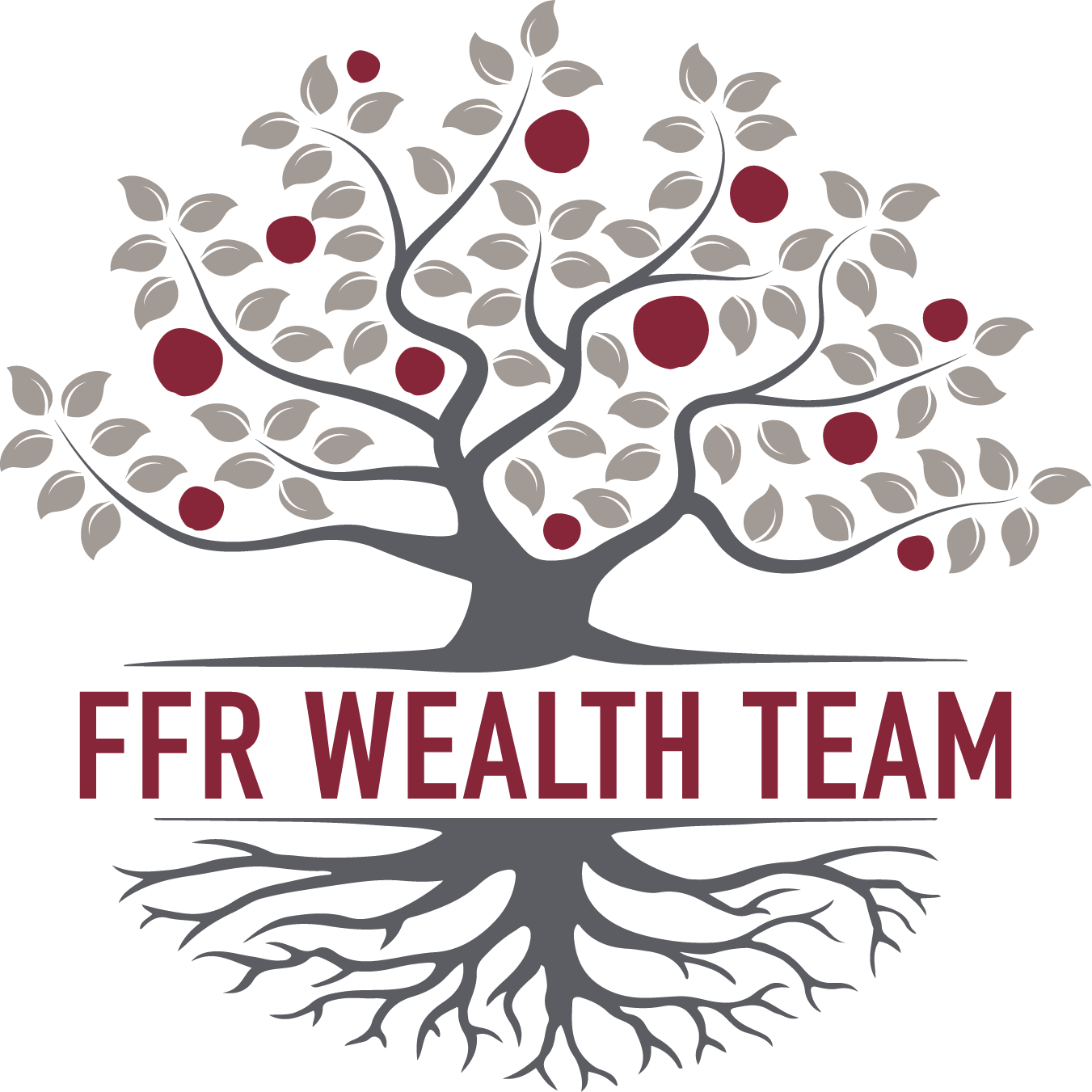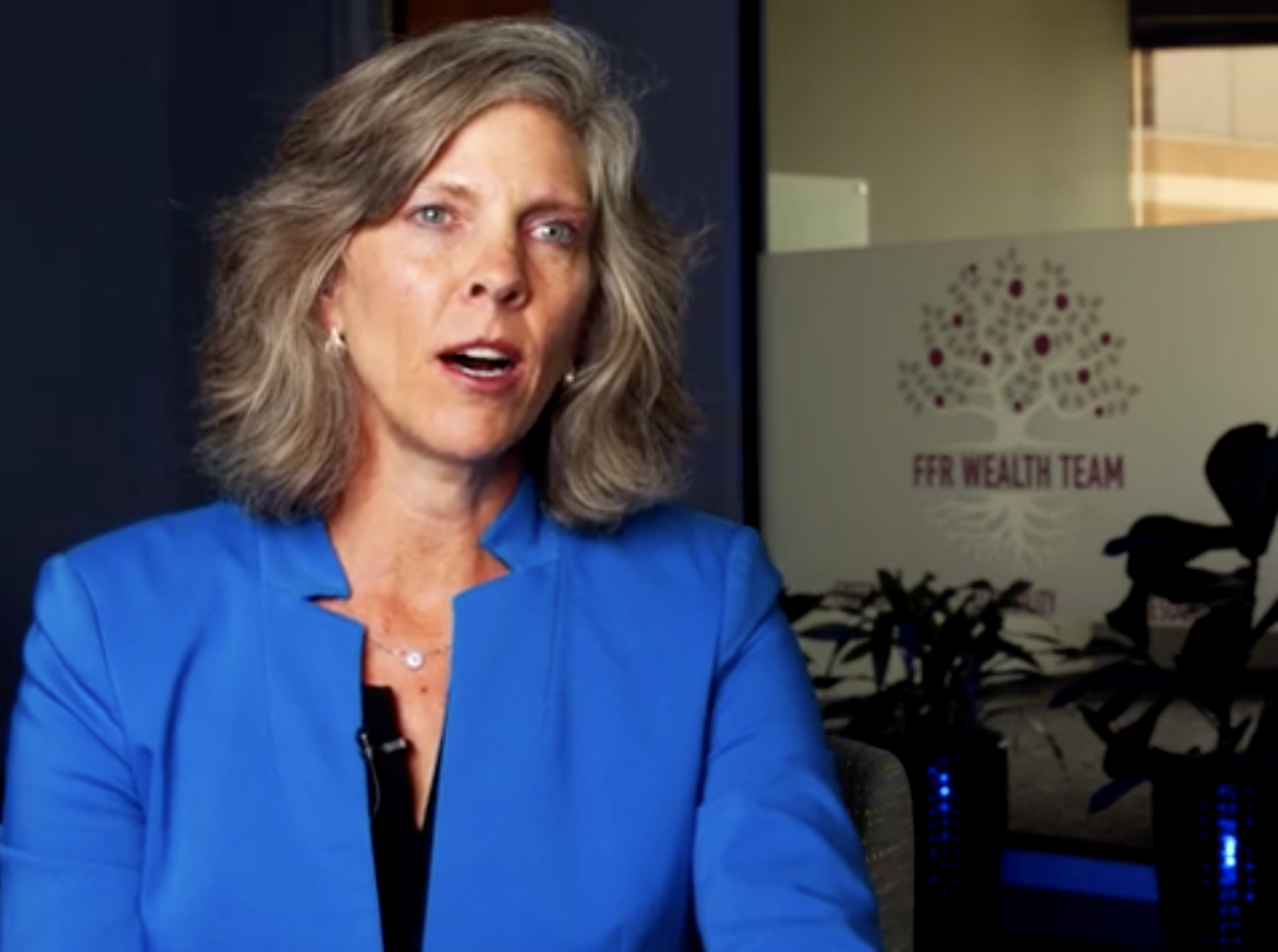Why the FFR Wealth Team?
There are roughly 130,000 financial advisors in the United States.
Why choose us? The FFR Wealth Team chooses to live by our defined values, not only professionally, but personally. Our value system drives our business and our relationships. Click to learn more about how we serve our clients, and read on to see what we value most.

Family
Genuine. Supportive. Love one another.
At FFR Wealth Team, family is our foundation. Built on Bill Funke’s legacy of love and support, we consider our clients an extension of our family. We are dedicated to helping you and your loved ones reap the rewards of your hard work.
Accountability
Own commitments. Work to deliver results.
Your best interests come first. As CFP® professionals, we are committed to ethical standards, integrity, and confidentiality. We take ownership of our commitments and work tirelessly to deliver results that prioritize your needs.


Persistence
Positive “can-do” attitude to completion.
We are dedicated to guiding you toward your goals with a positive, can-do attitude. By communicating regularly and simplifying complex ideas, we ensure your journey is on-track and aligned with your vision of true wealth.
Lifelong Learning
Inquisitive. Innovative.
Continuous education is key to growth. Our team embraces curiosity and encourages new ideas, helping you understand the strategies behind our recommendations and the results they yield.


Respect
With humility, listen to understand.
Trust and integrity are at the core of our interactions. We listen with humility, striving to create a welcoming environment where you feel safe and valued as our client.
What Should I Look for When Choosing a Financial Advisor?
When it comes to finances, many people want to do it themselves.
When it comes to finances, many people want to do it themselves. Some people think that they can do the work as well as an advisor, or think they cannot justify paying a fee for the services provided by that financial professional. In other words, they don’t think the value they would receive is worth the cost.
Do you handle your own finances? Have you wondered what you could gain by working with a financial professional?
Many people consider working with an advisor when their finances have reached a certain point of complexity – they want someone else to step in to evaluate their situation and weigh in on what’s next. Maybe you started your 401(k) through work, then started investing on your own, outside of your employer-sponsored plan. Now you’re thinking about preparing for your next big steps – retirement, paying for your children’s education, a major purchase.
You have saved your hard-earned money, you have invested it, and now it is time to pursue your dreams with the help of a professional. Many people do not have a clue how to start this process or what questions they should be asking when it comes time to sitting down with an advisor/planner.
There are thousands of different financial institutions across the country that work with individuals, families and businesses. Each firm has multiple advisors/planners within those offices. Do you see where I am going? There are a ton of options out there. The process can be overwhelming, especially if this is the first time you are seeking financial advice.
This blog is designed to help you understand what you should be looking for when finding the right fit for you and your individual situation. What should you be asking an advisor when you establish the relationship?
1. Are you a Fiduciary?
A fiduciary is anyone who has a legal responsibility to put the client’s interest ahead of their own. In layman’s terms: The advisor has to do what is best for the client, rather than what is best for themselves. So, for example, the advisor cannot put you in the most expensive product to generate a higher commission for themselves.
An important note: Not all financial advisors are fiduciaries. This does not mean that advisors who do not have a fiduciary responsibility are not acting in your best interest, but rather that those who are fiduciaries are held to the highest standards.
2. What are your fees?
This seems to be a pretty straightforward question, but some people will forget to ask it before they start working with someone. You wouldn’t buy a car without knowing the price, so why do that with your investments? There are a variety of prices associated with a vehicle that depend on the model, class size, condition, etc. The same goes with investment products and services. A smart consumer is an informed consumer!
3. What services are provided within your fee?
Everyone wants to get more “bang for their buck.” So make sure you understand what is included with the fee you’re quoted. After speaking with an advisor, you should know the answer to these four fee-based questions:
- Is that strictly asset management?
- Does that include a comprehensive financial plan?
- Does this give me access to tax services?
- Will I be able to speak to a trust service representative?
Many firms include these offerings within their fee structure; if so, make sure you take advantage of them. Other firms offer an a la carte menu – you will pay for any additional services on top of your asset management fee.
4. Who are my contacts within your firm?
I know this seems like an odd question, but it is an important one to ask. Why? Because as I just mentioned, the firm might provide a variety of services, and it is good to know who to reach when you have a question regarding different topics. Most advisors/planners have a team of individuals surrounding them to help accomplish the tasks at hand. Having access to multiple individuals may get you the answer you are looking for more quickly.
5. How will we communicate?
Much like you want to know who to reach out to when you have a question regarding separate topics, it is also important to know who is going to contact you through the planning process. It’s also important to know how long each process is going to take, when you will receive follow-up information and how the firm communicates. People receive hundreds of junk emails a day and random phone calls. To maintain the most effective relationship, it is good to know how exactly we should be communicating.
Helping individuals, families, and businesses is one of the many things that we do. If you are thinking about getting help from a financial professional or just want a second set of eyes on your existing portfolio, please reach out to schedule a complimentary informative meeting. For more information or to see how we work to process your investment strategy please take a look at this free guide.


